The Reserve Bank of New Zealand has lifted official interest rates by 5.25% over this tightening cycle, which has driven average mortgage rates up by around 2.50%:
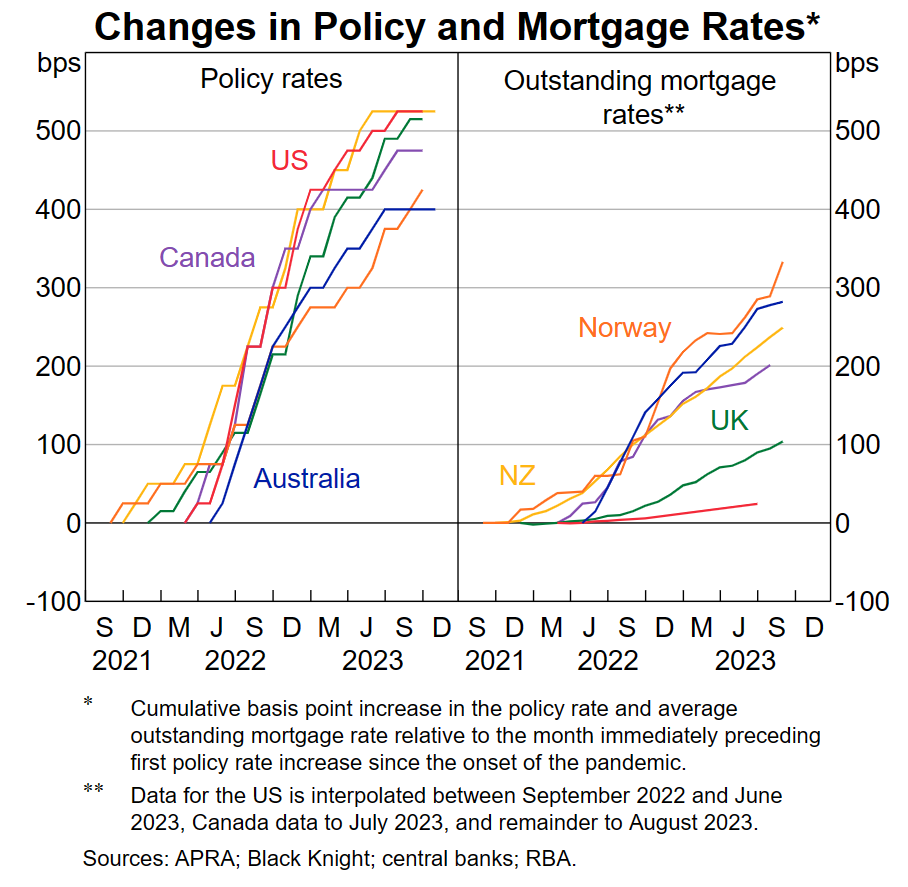
Independent economist, Tony Alexander, conducts a monthly Spending Plans Survey, which gauges household spending intentions.
The outlook for New Zealand retailers remains poor with a net 19% of respondents this month saying they plan to cut back on spending:
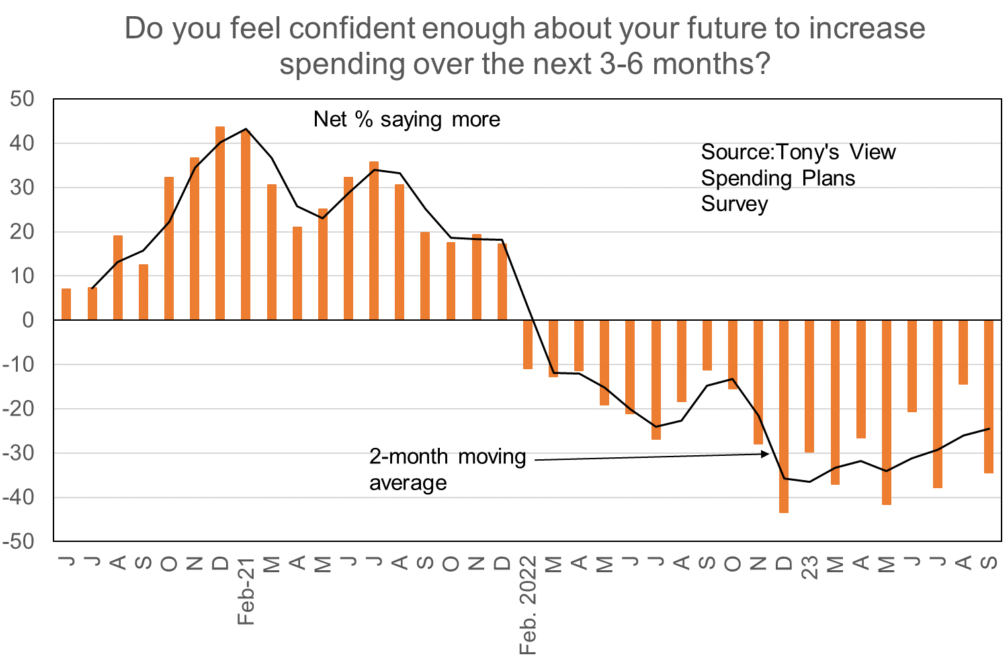
Households plan to cut back on most discretionary areas of spending. By contrast, they intend to spend more on groceries, reflecting its essential nature and sharp price rises:
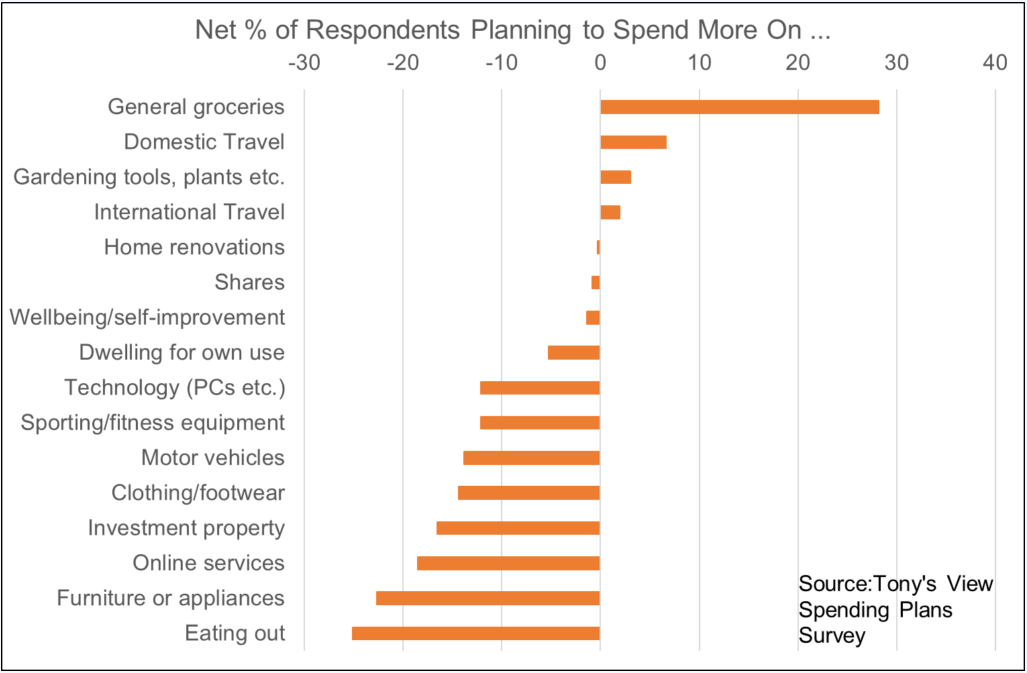
Overall, the survey paints a picture of New Zealand households cutting back to make ends meet.
Indeed, Alexander notes that “the Reserve Bank’s intention when running tight monetary policy is primarily that you and I will spend less. If we don’t they keep raising interest rates until we respond”.
It is also worth bearing in mind that New Zealand’s labour market is weakening at an alarming rate.
The latest SEEK data shows that job vacancies are falling back to their pre-pandemic level, whereas the number of applicants per job ad has surged above the pandemic peak:
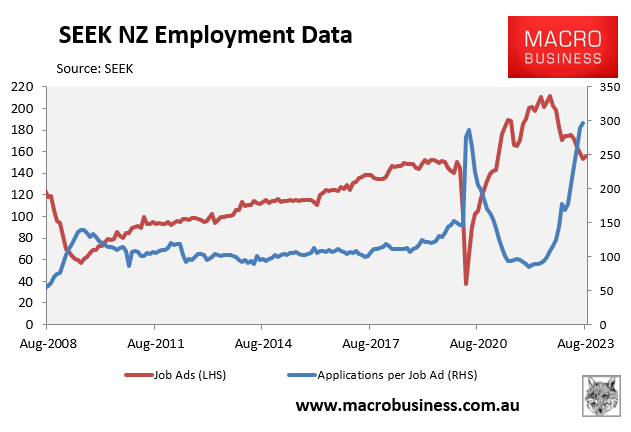
The latest Westpac-McDermott Miller Employment Confidence survey likewise showed that employment confidence fell by 7.4 points to 98.3 over the September quarter, which was the first time Kiwi households have had a negative view of the labour market since March 2021:
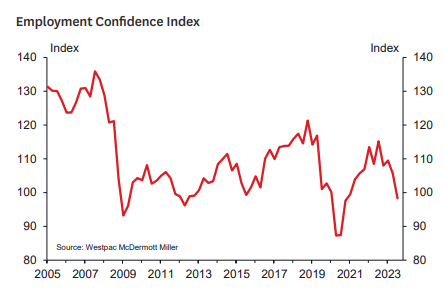
Meanwhile, New Zealand businesses are now finding it far easier to find workers:
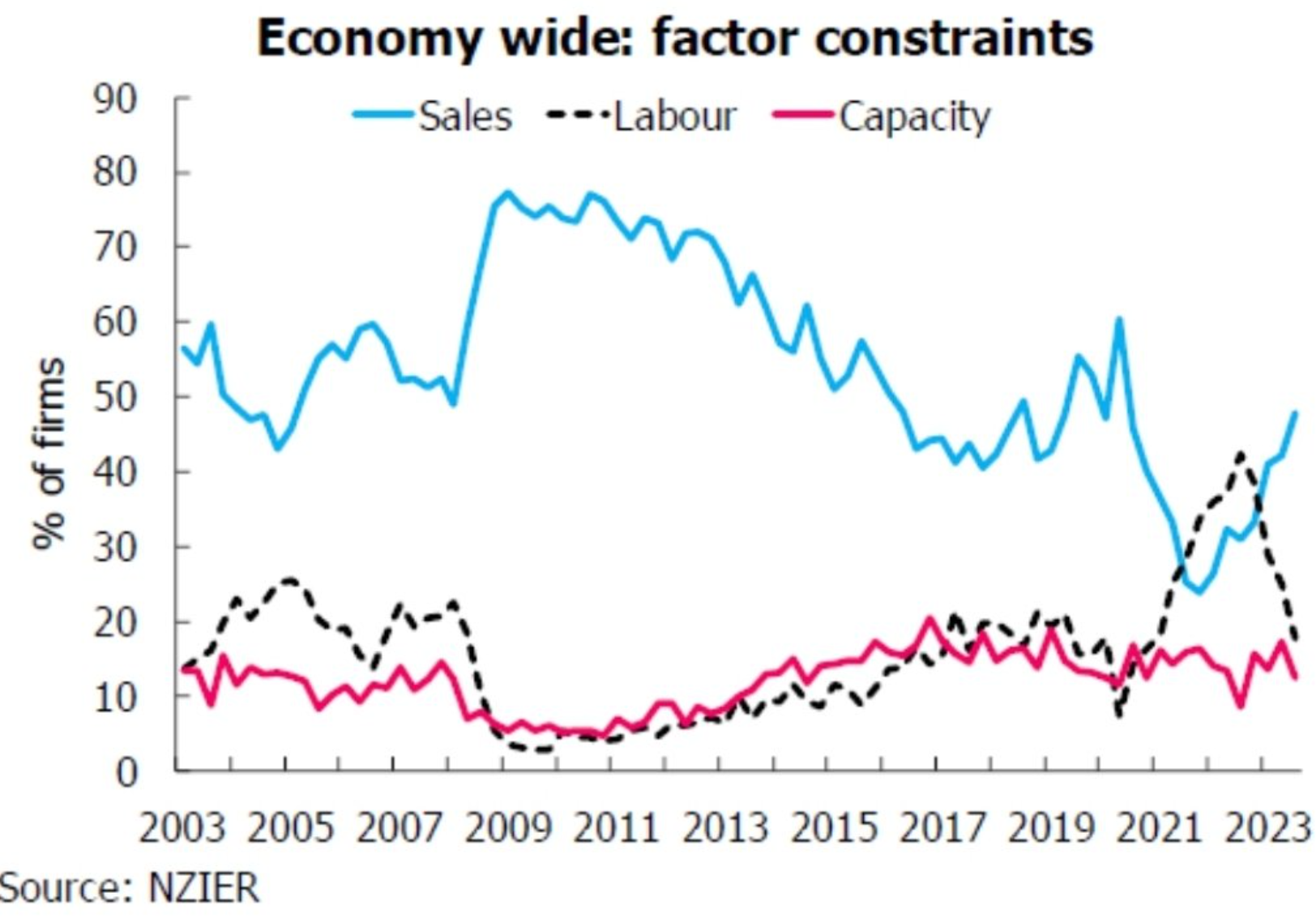
Clearly, the Reserve Bank’s aggressive interest rate hikes are working to hammer households into oblivion.

